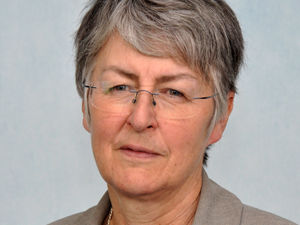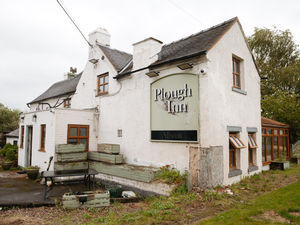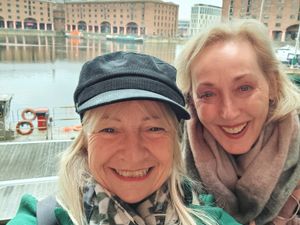Sister of Telford man who died after taking legal highs welcomes ban
New laws banning so-called "legal highs" may not stem their tide, Europe's drugs agency has warned.

The claim comes just weeks before the new Psychoactive Substances Act, which received Royal Assent in January, comes into force.
The European Monitoring Centre for Drugs and Drug Addiction (EMCDDA) said it was "unlikely" that any new regime could halt the flow of the designer drugs, which emulate the effects of controlled substances such as cannabis or heroin.
But Telford campaigner Charlotte Delo, whose 29-year-old brother died an agonising death after taking one of these drugs, says the new law will make a major difference.
She said the very existence of the law would send out a message that the drugs were unsafe.

Mrs Delo has been campaigning for the ban since the death of her brother Jamie Penn in May 2014.
Mr Penn, a trainee bricklayer, had taken the then-legal drug 4,4-DMAR, which reacted with ecstasy he had taken the night before.
Mr Delo, of Haybridge Road, Hadley, said: "It will make a difference. It will drive some of it underground, but it will make it much harder to get hold of the stuff if it is illegal.
"At the moment, these drugs are everywhere. They banned the one that Jamie took, but every time they do that the manufacturers change the ingredients slightly to get around it.
"Once the ban is in force it will make no difference as they will all be illegal.
"Many people think because these drugs are legal they are all right, but research has shown they are six times stronger than heroin and three times stronger than MDMA (ecstasy)."
She added that the NHS spent millions of pounds treating people with conditions related to the substances.
The EMCDDA's annual report said that more than 100 new legal drugs – also known as "new psychoactive substances" – were recorded by the authorities last year and more than 560 were now being monitored by the agency.
"Given the nature of the market and the continuous stream of new substances, it is unfeasible that all of them can be controlled," the report said.
"In October 2015, the Chinese government controlled 116 new substances — which is just over the number currently identified each year in Europe.
"There is now strong evidence that new substances are causing a wide range of serious harms in Europe — mirroring the increasing availability of these substances.
"It is unlikely that any regulatory system can be designed to sufficiently limit the stream of new substances being manufactured without resorting to a ban on a huge range of chemicals."
The report does not, though, specifically refer to the Psychoactive Substances Act, which received Royal Assent in January.
The law aims to prohibit use of designer drugs by prohibiting "any substance that is capable of producing a psychoactive effect", by creating "opt ins" for substances such as tobacco, alcohol, food and medicines.
The Act made provision for the new law to come into force today, but the precise date will be down to the Home Office.
"It will come into force during the spring," said a Home Office spokesman.




